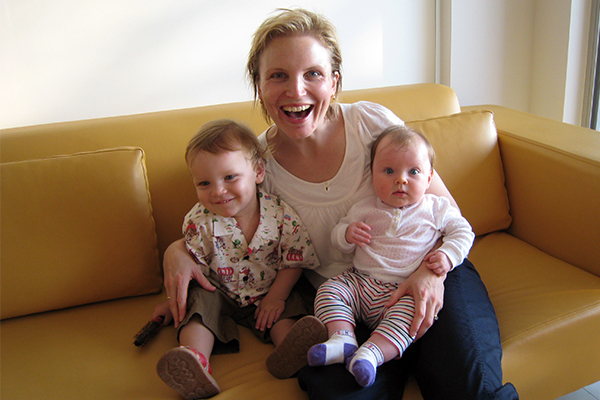Winner
To help disrupt gender stereotypes around parents’ working and caring roles, engineering, design and advisory firm Aurecon introduced a new parental-leave policy that encourages “secondary carers” to play a more active part in caring for children.
Launched in 2017, Shared Care is part of an over-arching policy to provide employees with genuine choice about how they balance work and caring responsibilities.

It operates alongside Aurecon’s YesFlex flexible working policy which gives flexibility for all its 800 New Zealand employees, who are based in five cities around the country.
Shared Care offers 14 weeks of paid parental leave, taken as a block or interspersed with work days, with KiwiSaver contributions continued for 14 weeks of any unpaid parental leave.
If both partners work for Aurecon, both are entitled to paid parental leave, and if an Aurecon employee is returning to work and their partner is caring for their child but does not have access to paid parental leave, Aurecon will pay 150 per cent of the employee’s salary for up to 14 weeks.
“This makes it easier for primary carers to return to and stay in the workforce, improving career prospects and reducing the career and financial penalties that can come with extended leave,” says Aurecon’s Managing Director NZ Tracey Ryan.
All Shared Care provisions must be taken up within the first 12 months of the child’s birth or arrival into the family.
The policy was first pitched by an Aurecon Diversity and Inclusion Manager in early 2017 and went through an extensive consultation and co-design period with the firm’s People Team and employees.
“The policy developed organically in response to feedback from employees,” says Tracey.
During consultation, Aurecon developed the required infrastructure, embedding information about Shared Care into its cloud-based employee management system. An internal communications programme ensured all employees were aware of the new options.
The policy is inclusive of all families, including single parents and those in same-sex relationships and is available to birth, adoptive, surrogate and foster parents. All employees are eligible after working for Aurecon for three months.
The aim is to challenge typical arrangements of women undertaking the majority of unpaid work, including childcare, while men assume the breadwinner role.
“This policy disrupts these stereotypes and encourages new and more equitable arrangements for all parents,” says Tracey.
“Since the introduction of this policy, the percentage of parental leave taken by men has significantly increased, which demonstrates the desire of many men to play a more active parenting role. In the past, lack of policy provisions, stigma and societal norms have been a barrier.”
Tracey says Aurecon operates within one of the most gender-segregated industries in New Zealand. “Shared Care seeks to shift the behaviours in our industry and redirect what our future workforce looks like.”
From the beginning, company leadership got behind the policy in both internal and external communications. Chief Executive Officer William Cox told staff, “At the heart of Aurecon’s Shared Care is supporting men or secondary carers to be primary carers, and supporting women or primary carers by reducing the potential career and financial impacts of extended periods of leave.”
Tracey says Shared Care is a critical part of Aurecon’s staff attraction and retention strategy. “Building an inclusive culture that genuinely supports employees to navigate life’s milestones and balance work and caring responsibilities makes us an employer of choice and improves retention, significantly reducing the cost of recruitment and increasing our pipeline of talent,” she says.

“Policies such as Shared Care assist women to remain in the workforce and progress into leadership roles, which we know translates into beneficial business outcomes. We know that as our gender balance increases, our financial performance improves, our risk profile decreases, and our innovation rises.”
Since Shared Care was launched, female attrition in the workforce has dropped from 12 per cent to nine per cent. Since 2017, women have had a four per cent edge over men as a proportion of those winning promotion.
Nine people across New Zealand have taken up the Shared Care options since its launch. The proportion of men taking primary-carer leave has risen from zero to 52 per cent between 2017 and 2020. The number of men taking parental leave of any type has also increased significantly.
“Importantly, Shared Care has normalised balancing work and care,” says Tracey. “Seeing colleagues take parental leave while still building successful careers demonstrates to others in the business that both working and caring is possible.”
Judging convener Kirstin Te Wao says Shared Care is a bold and innovative initiative that’s disrupting gender norms in a historically male dominated industry. Making it okay for everyone to access paid parental leave supports women to advance in the workplace but also gives men a real chance to spend quality time with their family. It’s successful, in part, because it has been co-created with the people working at Aurecon which continues to evolve in response to the ever-changing family dynamics of our modern society.


